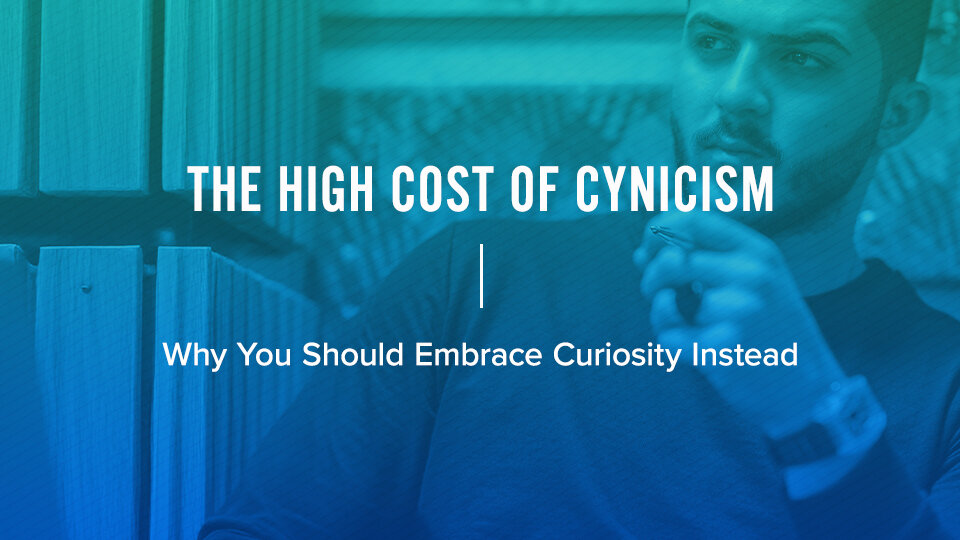The High Cost of Cynicism: Why You Should Embrace Curiosity Instead
By Maurilio Amorim
As leaders, whether you're managing a team in a business or nonprofit, the way you approach challenges, opportunities, and relationships significantly shapes the culture and success of your organization.
Early in my career, I thought cynicism was the key to surviving the business world. Boy, I was wrong.
It's easy to fall into the trap of cynicism—especially in our fast-paced, high-stakes environments. But while cynicism may feel like a protective measure, it can ultimately undermine your ability to grow, lead, and inspire.
Cynics view the world through a lens of distrust, assuming that everyone has a selfish motive and that every opportunity is a hidden trap. This mindset creates a rigid worldview where new ideas and perspectives are dismissed because they don't align with preconceived biases.
Cynicism isn't just about being cautious—it's about closing yourself off to learning, growth, and innovation. Instead of analyzing facts, cynics jump to conclusions based on pessimistic assumptions. And in doing so, they block themselves from potential breakthroughs, meaningful collaboration, and relationships.
But here's the thing: cynicism doesn't make you wiser; it just makes you bitter—and unhealthy. Recent research has shown that cynics tend to experience higher rates of depression, are more prone to heart disease, and live shorter lives than those who approach the world with a more open, trusting mindset. This emotional and physical toll is a heavy price for viewing the world through a negative lens.
Curiosity, on the other hand, is a powerful tool for any leader. A curious person, even one with a healthy dose of skepticism, approaches situations with wisdom, yes, but also with an open mind. Curious people actively seek facts, data, and alternative perspectives before forming opinions. They are unafraid to challenge their assumptions, adapt to new information, and change their approach when necessary.
This ability to learn, grow, and pivot differentiates strong, adaptive leaders from those who stagnate.
As a leader, your team, organization, and mission rely on your ability to evolve and make informed decisions. If you're operating with a cynical mindset, you risk making decisions based on fear, distrust, and preconceived biases. But by embracing curiosity—by questioning, investigating, and remaining open to new possibilities—you set yourself up for success. You'll be better equipped to navigate challenges, build stronger relationships, and foster a culture of innovation and trust.
So ask yourself: Are you leading with cynicism, always expecting the worst, and seeing the world through a filter of distrust? Or are you leading with curiosity and healthy skepticism—remaining cautious, yes, but open to the truth and willing to grow?
The choice you make impacts not only the future of your organization but also has severe repercussions on your overall well-being.
Don't let cynicism hold you back. Embrace curiosity—question wisely, learn continuously, and lead with an open heart. Not only will this mindset help you build a more resilient and adaptive organization, but it might also help you live a healthier, happier life.














